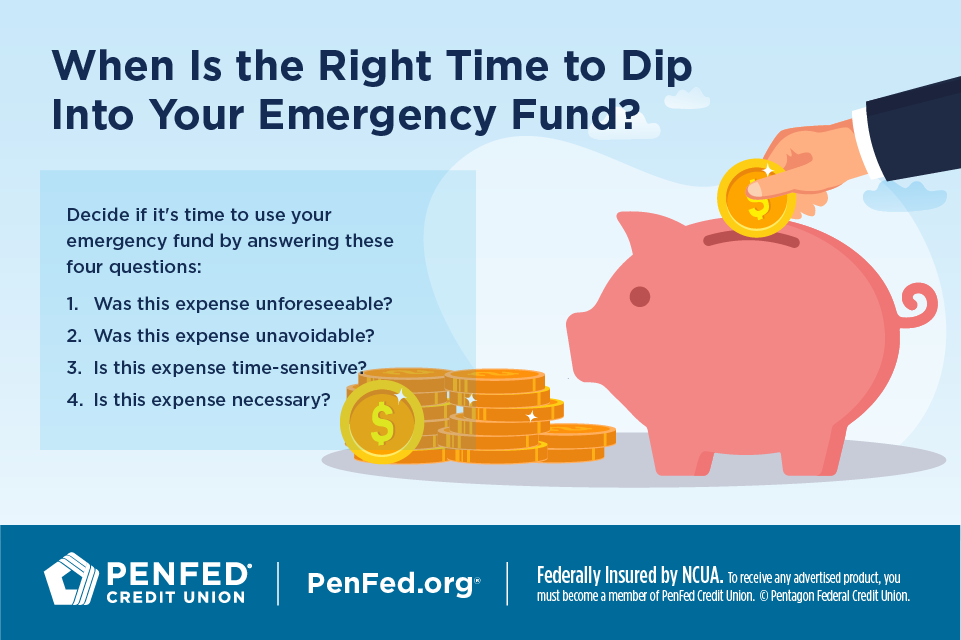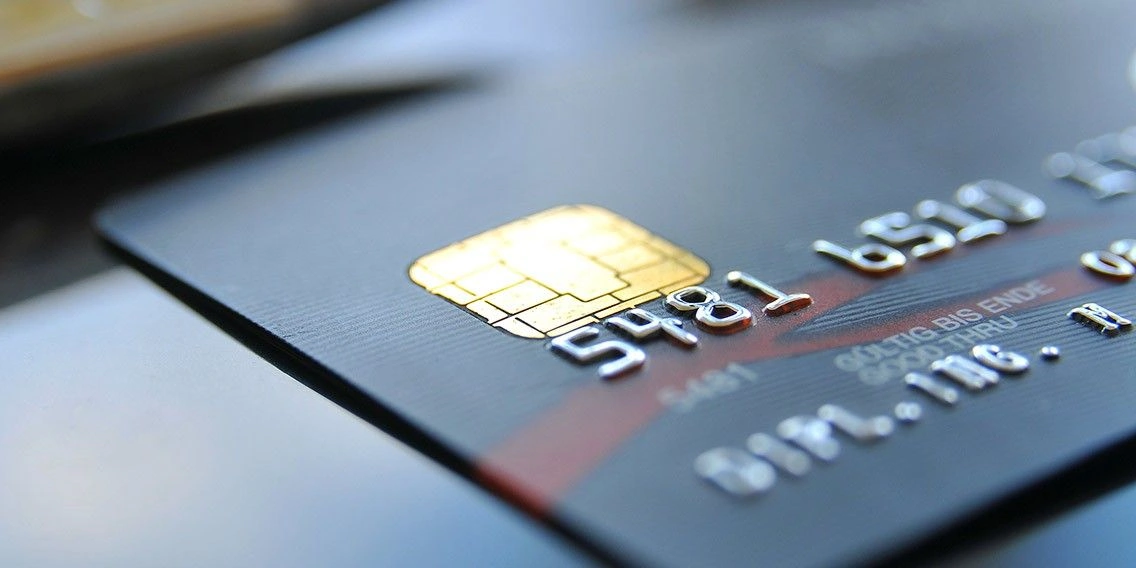Personal Finance
When Is the Right Time to Dip Into Your Emergency Fund?
What you'll learn: When to use your emergency fund
EXPECTED READ TIME: 3 MINUTES
You’ve followed the advice and created an emergency fund. You’ve added to it diligently each month. But now the big family vacation has come up — or maybe your TV is on the fritz. Does it really hurt to dip into those hard-earned savings?

Why You Shouldn’t Use Your Emergency Fund for Non-emergencies
Unfortunately, pulling out a little money from your emergency fund today could mean coming up short when you really need it. Your emergency fund shouldn’t serve as a long-term savings account for special occasions or to pad your budget when convenient (like around the holidays).
If you expect your rainy-day fund to protect you when there are real financial emergencies, you must resist dipping into it for vacations, down payments, and other foreseeable non-emergencies.
How to Avoid the Temptation to Spend Your Emergency Fund
Sometimes the hardest thing is looking at a full savings account and not giving yourself permission to indulge. The best way to stay strong is to plan for those moments of weakness:
- Separate your emergency fund and other checking or savings accounts.
- Label your emergency fund in your banking app. Seeing that label may be the nudge you need to leave it alone.
- Keep your emergency fund at a second bank or credit union rather than your primary financial institution. It’s harder to spend money impulsively if you have to wait a few days for it to transfer.
- Make your emergency fund less liquid by putting it in a short-term bond you can sell if needed or a CD with a shorter term.
- Open other savings accounts. There’s no limit to the number of savings accounts you can have, so open some for long-term goals like vacations, a down payment on a house or car, seasonal spending, or whatever else you want to save for.
- Open a Health Savings Account (HSA) or Flexible Spending Account (FSA) to handle medical emergencies.
- Manage your cash flow by tracking your spending and talking to your creditors about adjusting due dates for your bills.
- Plan — and budget — for expenses you can anticipate such as replacing your tires or repairing your roof. You can store money for costs like this in a separate sinking fund rather than drawing from your emergency fund.
- Establish a review process for using your emergency fund. This might include asking yourself a series of questions to determine whether the situation is really critical, or discussing the situation with your partner or financial advisor before tapping those funds.
Separate your emergency fund and other checking or savings accounts.
What Should You Dip Into Your Emergency Fund For?
The trick to protecting your emergency fund from your own best intentions is to define what constitutes financial emergencies. True financial emergencies are unforeseeable, unavoidable, time sensitive, and necessary. Here are five examples of common emergencies and non-emergencies you might encounter:
5 True Financial Emergencies
- Job loss
- Medical emergencies
- Dental emergencies
- Car repairs when driving is essential
- Home repairs for vital systems like running water or heat, or where safety is an immediate issue
5 Financial Non-emergencies
- That sweet, sweet vacation
- A down payment on your next car
- Credit card debt
- Padding your budget when you’re having a tight month
- Gifts for special occasions
The trick to protecting your emergency fund from your own best intentions is to define what constitutes financial emergencies.
FAQs
Where Should You Put Your Emergency Fund?
It’s best to store your emergency fund in an interest or dividend-bearing account or short-term investment like a savings account, high-yield savings account, certificate, or money market account. That way, it’s insured, accessible, and growing from interest or dividends. You can also use a diversified approach to grow your money faster.
Is It Better to Have an Emergency Fund or Pay Off Debt?
If you mostly have good debt, you’re able to manage your monthly payments, and/or you want to avoid additional debt, then you’re in a good position to prioritize building your emergency fund.
However, you may want to prioritize debt reduction if you’re struggling to make minimum payments, your debt principal is growing quickly, a significant portion of your income is going toward debt, or you need to improve your credit score quickly.
It’s best to store your emergency fund in an interest or dividend-bearing account or short-term investment.
Should You Use Your Emergency Fund as a Down Payment?
Spending your emergency fund on a down payment puts you at financial risk. Purchasing a car or home involves taking on significant debt. Using your emergency fund to cover part of that cost leaves you vulnerable to unplanned debt, including maintenance, insurance, and repair costs from your purchase.
The Takeaway
Saving money isn’t always fun or easy, but when disaster strikes, you’ll be grateful you thought ahead. After all, the best way to build wealth for the future is by protecting what you have today.
Explore Savings Account Offerings at PenFed
Discover the diverse offering of products, services, and support available to our members.




